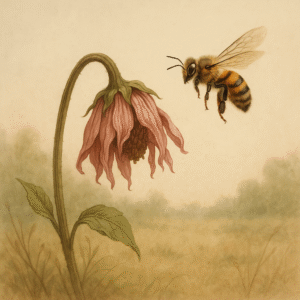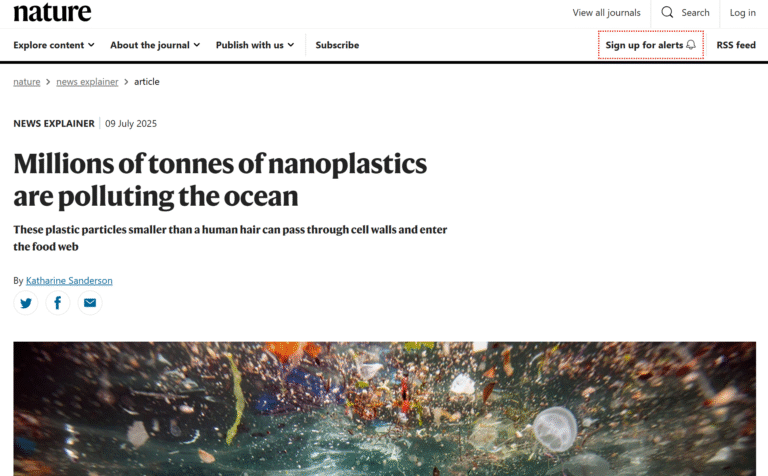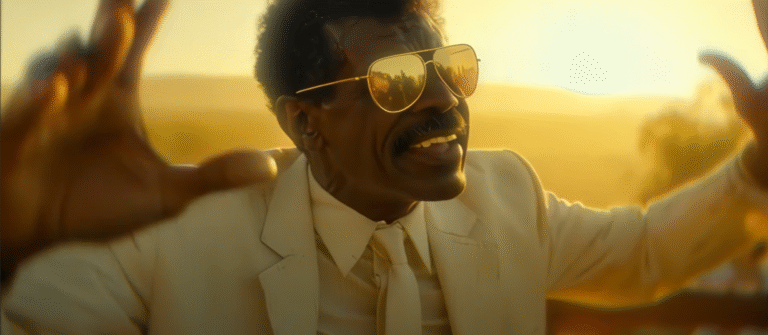What happens when a symbiosis breaks
Google and content creators once thrived in symbiosis — creators fed the index, Google sent traffic. But as AI answers replace links, that balance is breaking. Like in nature, a broken symbiosis leads to collapse, migration, or evolution. The open web must adapt, or risk becoming an ecosystem without pollinators.
A personal view on Google, Content Creators and the Future of SEO
When I think about the future of content creators, SEO, and Google, I try to zoom out as far as possible. Not to get lost in short-term trends, algorithm updates or the latest AI features—but to look at the underlying relationship. What is really happening to the dynamic between creators and platforms? Is this a temporary disruption, or a fundamental shift?
To explore that question, I found myself reaching for a metaphor from biology.

A symbiotic relationship
For years, the relationship between Google and content creators could be compared to a biological symbiosis—like bees and flowers, or clownfish and sea anemones. Creators produced content that Google indexed and ranked, bringing them traffic. In return, Google’s search engine became more valuable because it could answer more questions with relevant content. Both parties benefited. There was an incentive to create, and a system to reward it.
But that balance has shifted.
Now that Google increasingly uses AI to generate its own answers—often based on the very content it crawled from publishers and creators—without necessarily linking back or sending traffic, that original mutual benefit is in question. The AI doesn’t cite. It doesn’t share. It just answers.
So what happens in biology when a symbiotic relationship breaks?
1. Collapse, exit or migration
In nature, when one side no longer benefits from a partnership, it often retreats, dies out, or evolves into a new ecological niche.
Prediction:
Content creators may stop contributing to the open web. Instead, they’ll move behind paywalls, into closed platforms, or invest in formats that don’t depend on search—like newsletters, podcasts, communities, or direct monetization channels.
As a result, the web will become poorer in original content, and the AI models—trained on that original content—will start to recycle, degrade, and hallucinate more.
2. Parasites undermine their hosts
If a symbiosis turns parasitic, the parasite may thrive—briefly—until the host is too damaged to sustain it. And then both suffer.
Prediction:
Google’s short-term gains from AI-generated answers could lead to long-term losses. As original content dries up and trust declines, search results become generic, inaccurate, or outdated. Users will notice—and look elsewhere.
3. Evolution and adaptation
Disruption doesn’t always mean destruction. In ecosystems, disruption often leads to evolution.
Prediction:
Creators will develop new tools to protect their content (technical blocks, legal measures, metadata). New platforms may emerge with fairer economics—where creators get attribution, payment, or control. Google itself may evolve too, under pressure from users, legislation, or declining quality.
Looking Ahead
This metaphor doesn’t predict stability. If the current imbalance continues, something has to give. Either:
- Google restores balance with creators (a renewed symbiosis),
- Creators exit the ecosystem (migration or collapse),
- Or something entirely new emerges.
A Personal Belief
Despite the disruption, I strongly believe this relationship will evolve—not die. Creators are resourceful, and so are platforms. We’ll find new ways to earn, to build trust, to deliver value. The symbiosis may look different in the future, but I don’t think it’s over. In fact, I think the next version of it might be even stronger—once it’s rebuilt on new, fairer foundations.

